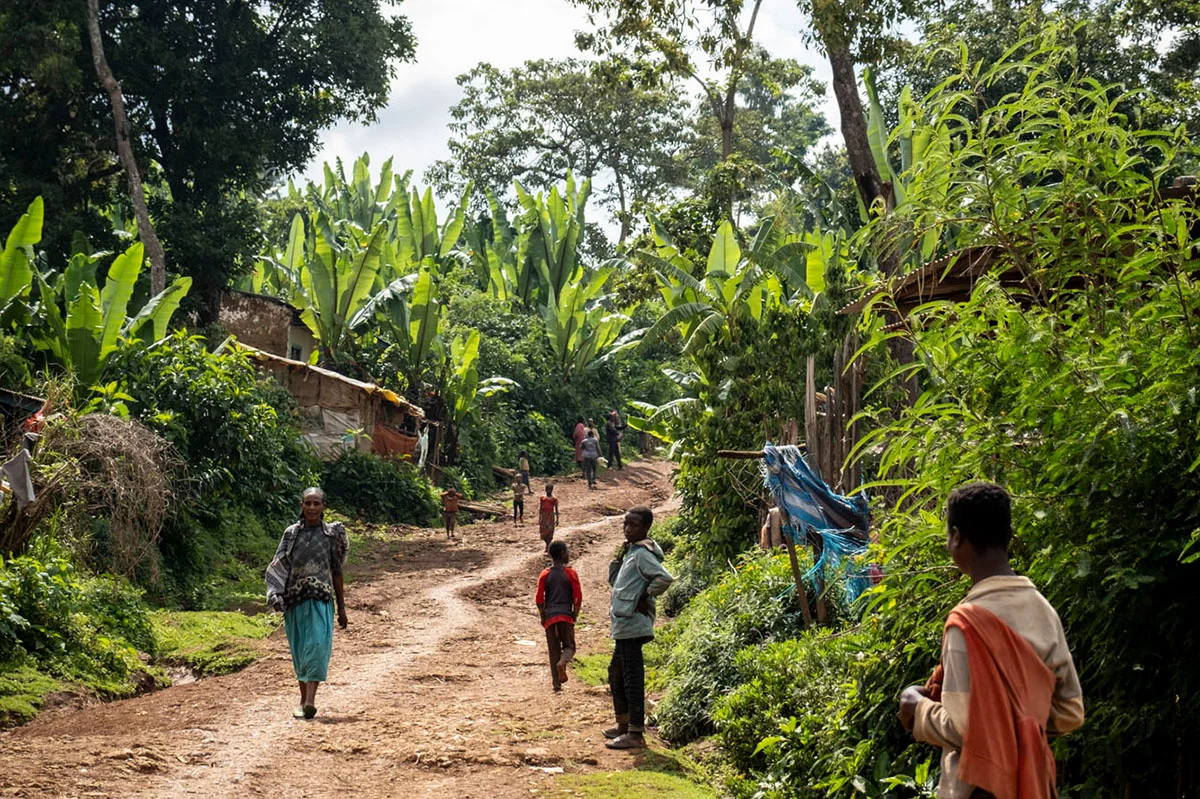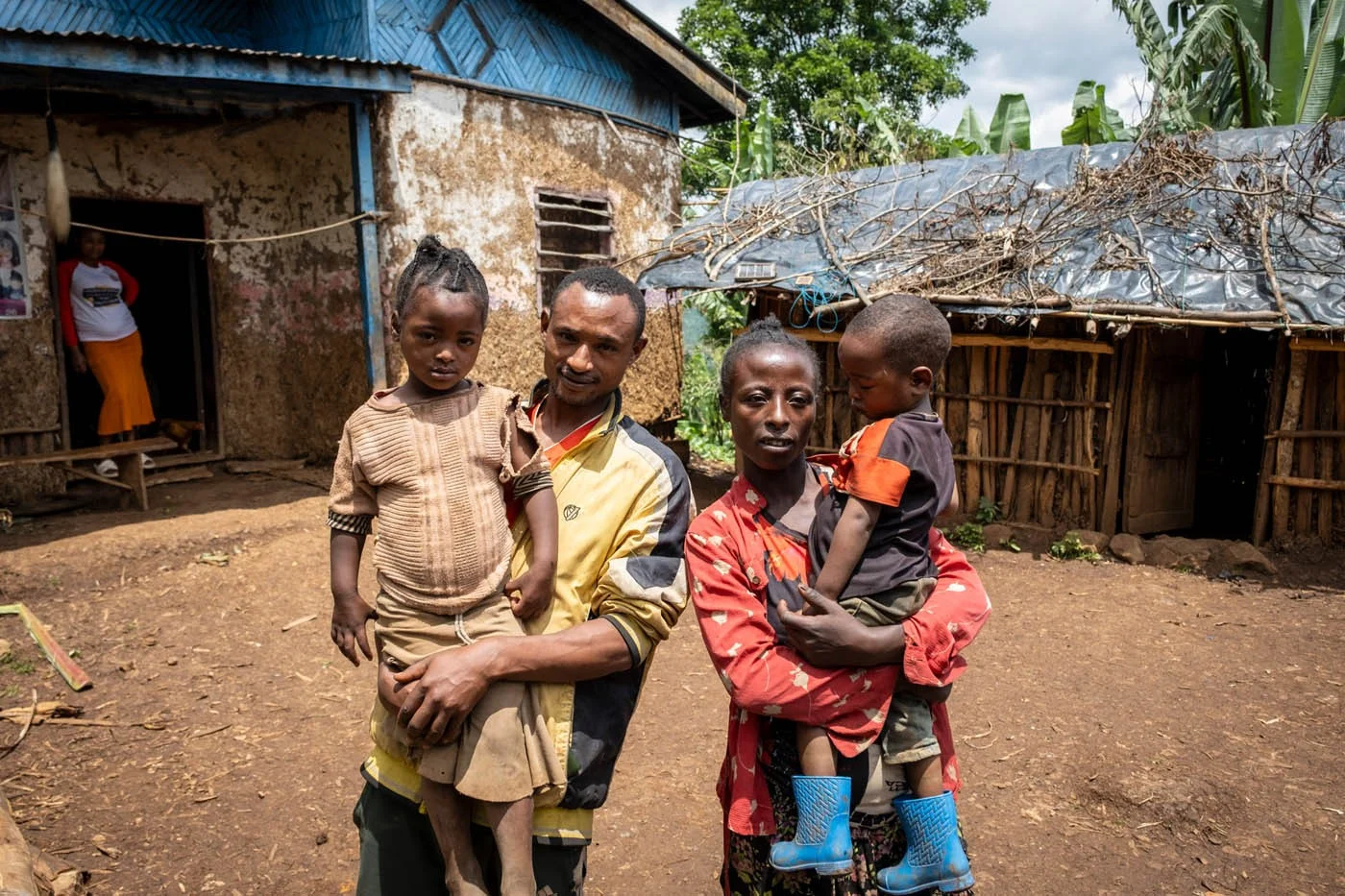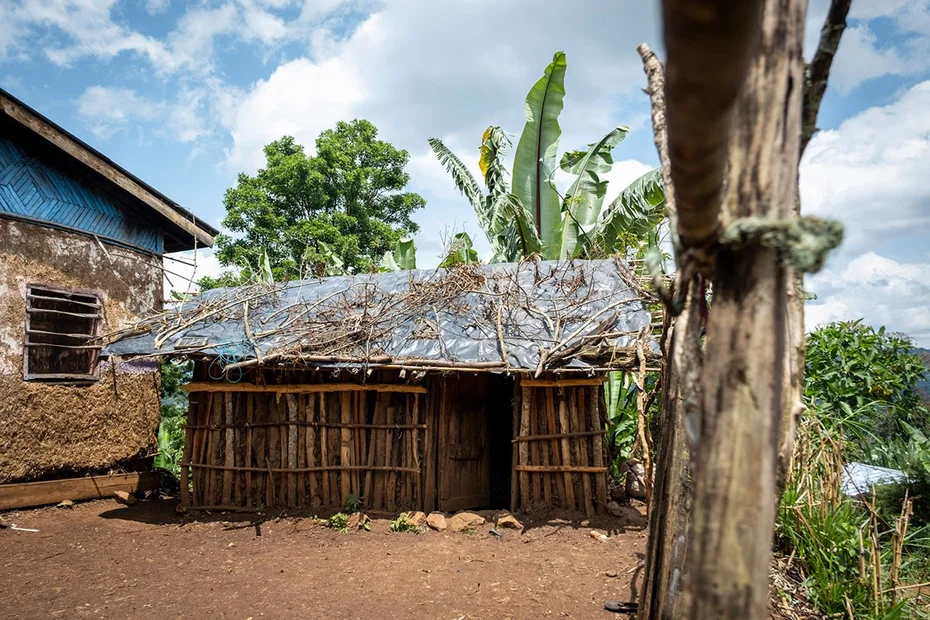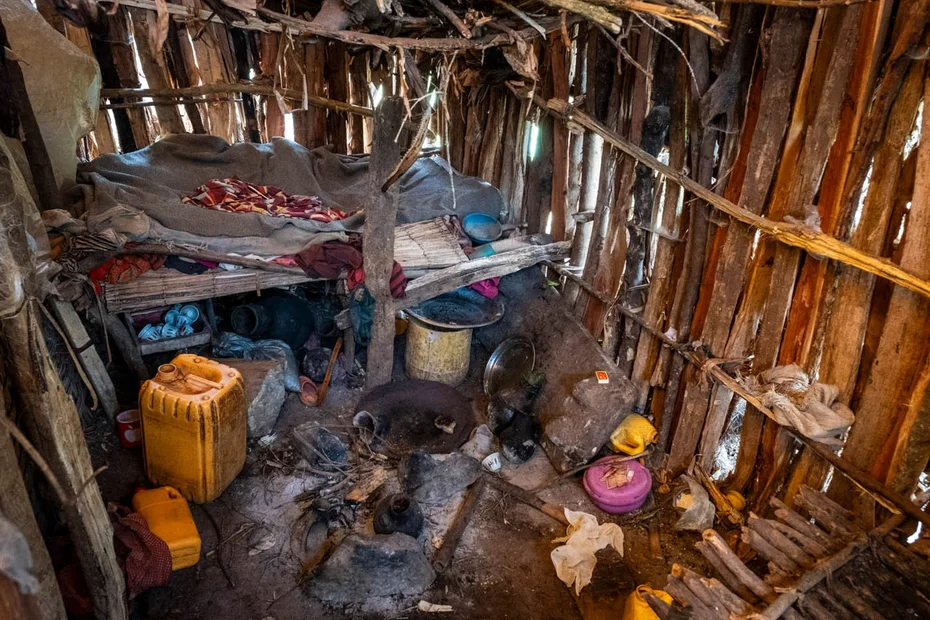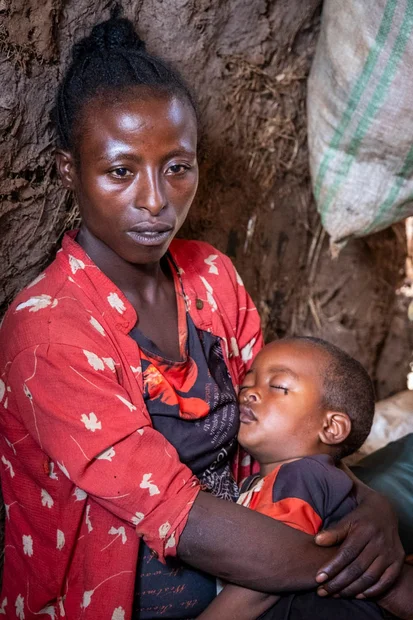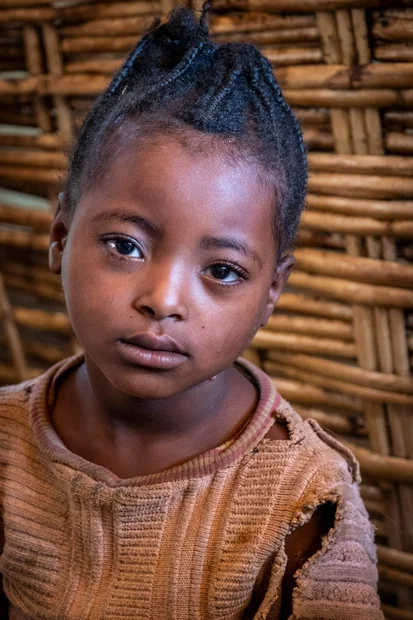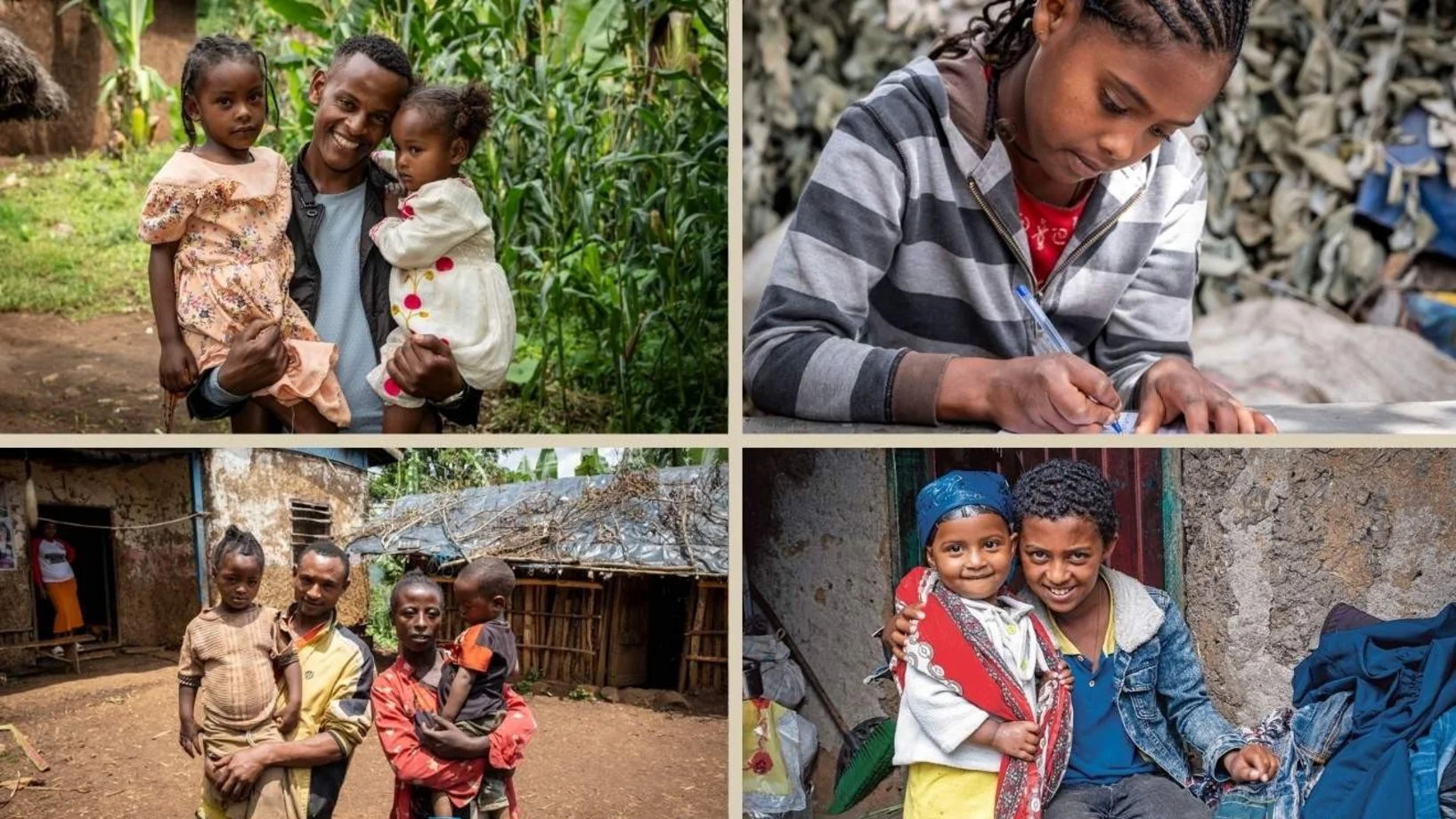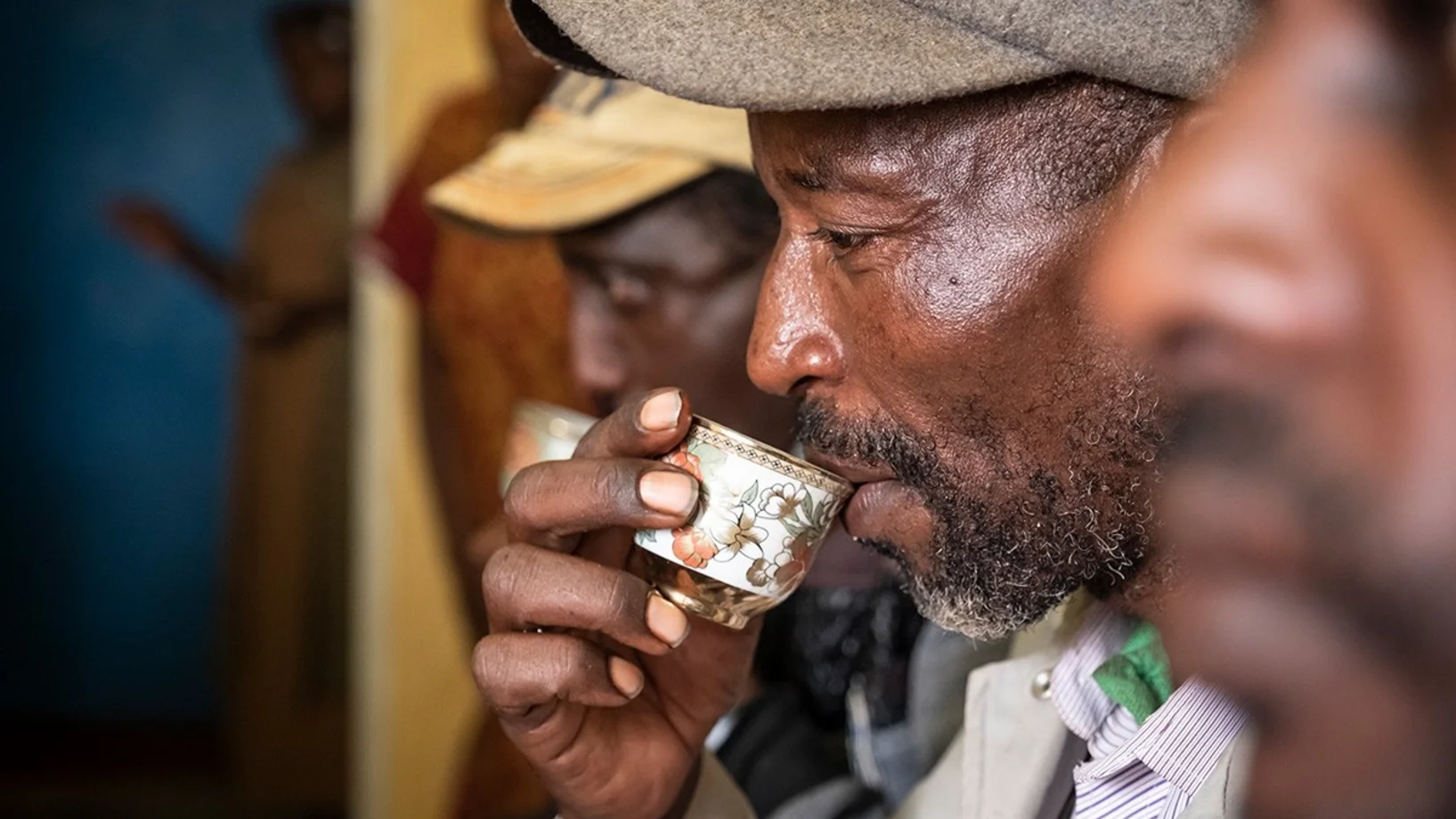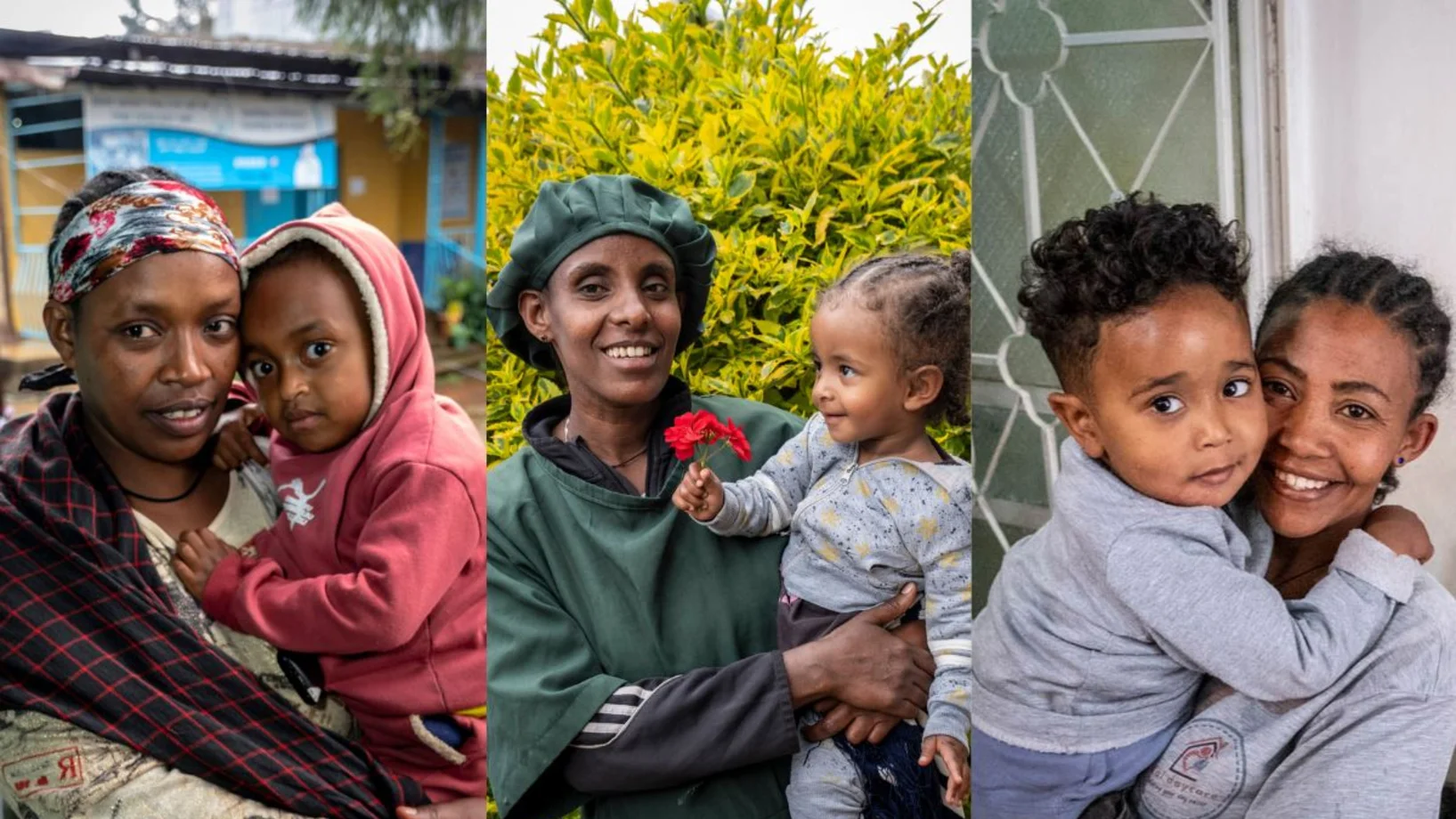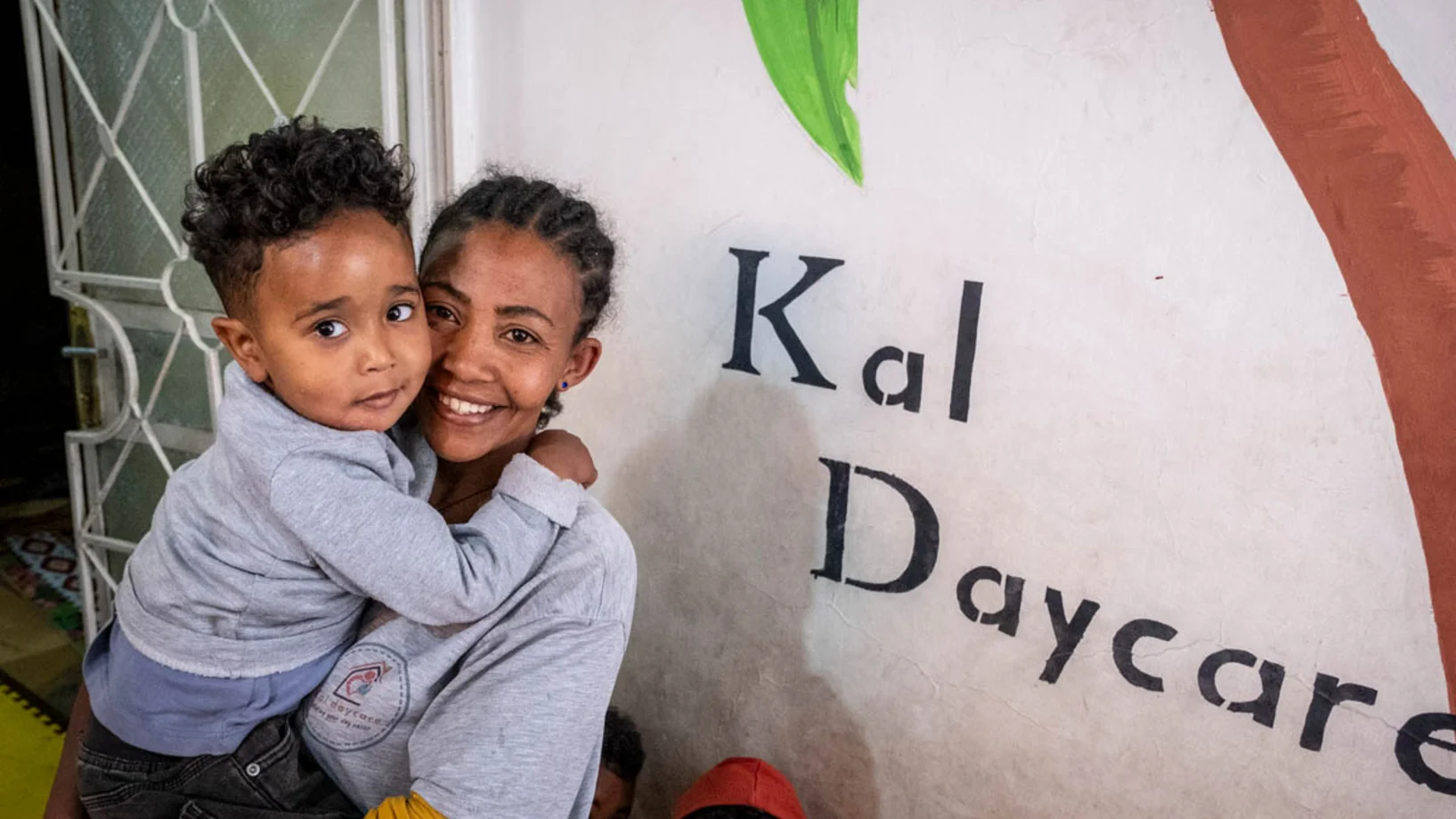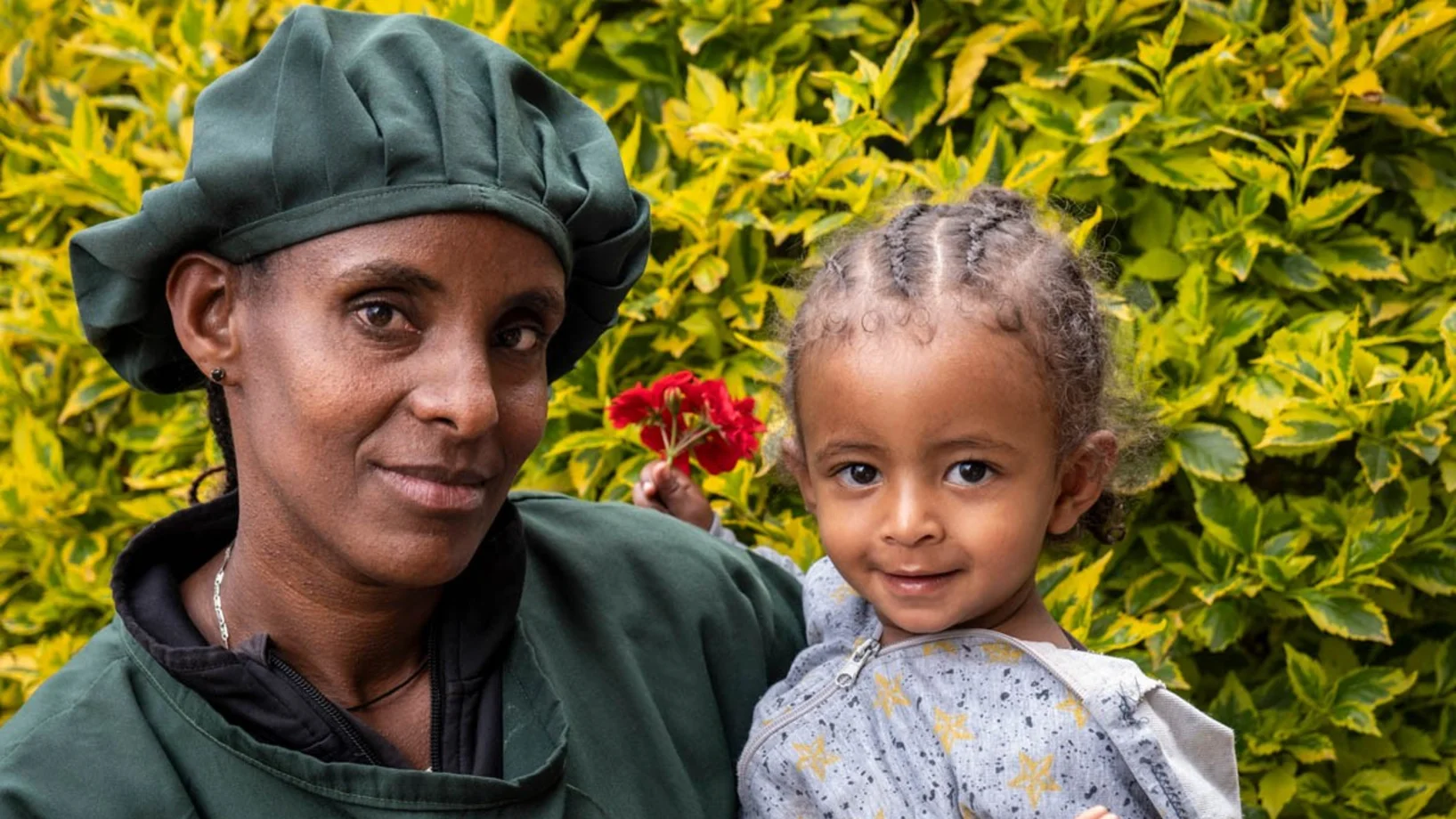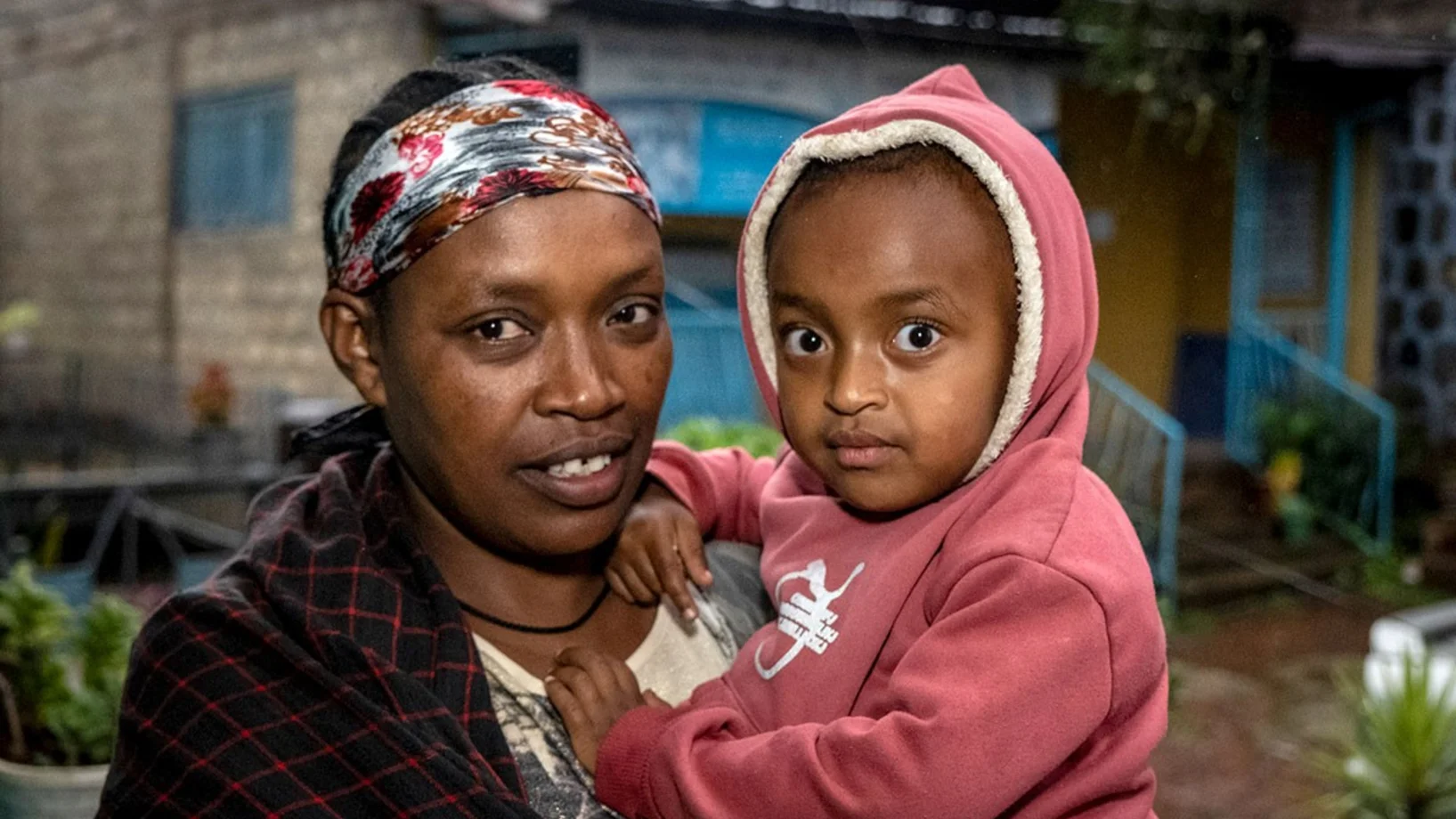The forest gardens in southern Ethiopia are unique, promising a life in harmony with nature. But many young families have slipped into poverty and hunger. The young couple Wude and Sisay now want to fight for a better future. With hard work, love - and a helping hand from our donors.
How beautiful this mountainous region is! Giant trees line the gravel road that winds its way up the slope. Mangoes and avocados grow on many of the trees. Below them, the giant Ensete bushes, also known as ornamental bananas, stretch as high as detached houses. Their man-sized leaves glow bright green in the morning light. The shrub below needs its shade: The cherries of the famous forest coffee only thrive with protection from the sun. On the ground, the hard-working farmers grow cabbage, chard, beans, taro, potatoes and carrots: this is what paradise could look like.
For centuries, the Gedeo people in southern Ethiopia have cultivated the forest in this way: it is used in tiers. The wood and fruit of the trees are supplemented by the leaves of the ensete. The people produce their staple food "Kotcho", a type of bread, from the starchy shrub. The coffee is sold and brings good money. The vegetables provide a varied diet. In addition, fodder plants for goats, sheep and cattle grow on the ground.
This makes the plight of the young family in the village of Halemo all the more surprising: Wude Sisay and her husband Sisay Beraso are in their mid-twenties and have two children, four-year-old Nehmiya and two-year-old Yohanis. Their hut, built from wooden beaters, is as full of holes as their clothes. They don't have the money to plaster it with clay and the street dust blows in through the cracks. The roof is made of plastic sheeting. It smells of urine. Behind the hut is a calf in a shed and there is also the communal latrine, which the young family shares with their relatives. Their hut is just a few steps away from a better-built mud house. Sisay's father lives there with his second wife and their children.
There is no bread left in the young family's hut today either. But they are still in love. They got married six years ago - very young, as is the tradition. And as is customary in Raphe, Wude took her husband's first name as her surname, and in official documents she is now called Wude Sisay.
Like many couples in religious Ethiopia, they met after church services in the Protestant congregation. She was making coffee for the churchgoers in an earthenware pot over a charcoal fire. "I fell in love instantly," says Sisay. Why did Wude take him up on his offer? "He's a good person," she says. "And have you looked at him? He's very athletic!"
Sisay is a hard worker, he works as a day laborer in agriculture. He receives the equivalent of 63 centimes a day - far too little. A young family in Raphe lacks the basics: a patch of forest where coffee and vegetables can be grown. Like many young families, Sisay and Wude have no land to cultivate.
Which is because the population has grown so quickly: at 162 square kilometers, Raphe is as large as the canton of Appenzell Innerrhoden, but has six times as many inhabitants - around 98,000. With each generation, each family inherits a smaller and smaller piece of land - and many inherit nothing at all. Sisay's father was unable to give him any. He needs it for himself, his wife and other children: Sisay has eight siblings.
"There have been bad days when we didn't eat anything," says Wude. "Not even the children." Sisay's father has no way out: "We don't want to ask for help, at least not all the time. We feel ashamed. And Sisay's father has children of his own to look after."
If you don't have land, you need capital to start a small business. But until now, couples like Wude and Sisay have had no access to financial services. There are no banks in Raphe. Until now, anyone who wanted to invest had to rely on private money lenders.
Wude often worked as a day laborer in the production of kotcho, the staple food in Raphe, made from the starchy and scraped pseudo stems of the ensete shrubs from the forest gardens.
When Sisay, as a day laborer, could not find work in agriculture, he used to buy large loaves of bread in the nearby town and sell them by the piece in the village - with borrowed money. A large part of the proceeds always went to the lender as interest.
Fortunately, there is now hope. Menschen für Menschen has launched a new comprehensive project in Raphe - as the first and only aid organization in the district. Wude joined the new savings cooperative that Menschen für Menschen initiated immediately after the project was launched. With a microloan of the equivalent of 45 francs, she now has room to maneuver for her small business: she buys and sells food at local markets. She has just bought unripe avocados: "After just one week of ripening, I can sell the fruit on the local market with a 20 percent mark-up." Money that no longer goes towards usurious interest rates, but instead benefits the children and flows into further investments: The couple plan to buy ewes and offer their young for sale before Christmas and Easter when prices are good. Wude will expand the food trade: "In two years' time, we will have a better house and we will be able to provide well for our children - with food, clothes and school supplies. "
Wude has had a contraceptive rod, which protects against pregnancy for three years, inserted under the skin of her upper arm: "We need to be able to concentrate fully on working our way out of the crisis," she says. "We can't afford to have a third child."
"In the medium term, we will buy a small piece of forest," says Sisay. Then the family will harvest coffee and vegetables. "Not as day laborers for wages that are far too low," says Wude, "but on our own account."
Why we help
The families in Raphe are suffering hardship and hunger. A baseline study by Menschen für Menschen with 377 families examined the living conditions in the district. Nine out of ten families stated that they did not have enough to eat all year round. More than two thirds of families had gone to bed without dinner at least once in the week prior to the survey. The health and development of children in particular is at risk.
How we will achieve our goal
In the next three years, we will initiate comprehensive, interlinked measures: First and foremost, it is about people's nutrition and income. We are providing goats and sheep and bringing in more productive grain and vegetable varieties. Our agronomists show the families how they can optimize their small farms, for example for market cultivation. We network the farmers in savings groups and cooperatives so that they are stronger together. There is a particular focus on women: Because they are socially disadvantaged, there is untapped development potential.
The high birth rate reinforces the spiral of poverty - and many women are unable to determine the number of children they have themselves. We are therefore training twelve volunteer advisors in each community to pass on their knowledge of family planning. We provide the health centers with contraceptives. So that couples can consciously decide how many children they have - no more than they can feed. Because families fall ill due to contaminated drinking water, we open up new sources, repair and build wells.
What we want to achieve
The children of Raphe have a right to health and development. In the coming years, we will provide input and training to ensure that 3,600 particularly poor day laborer and small farmer families can work their way out of poverty and hardship and lead a decent life in their home villages.
